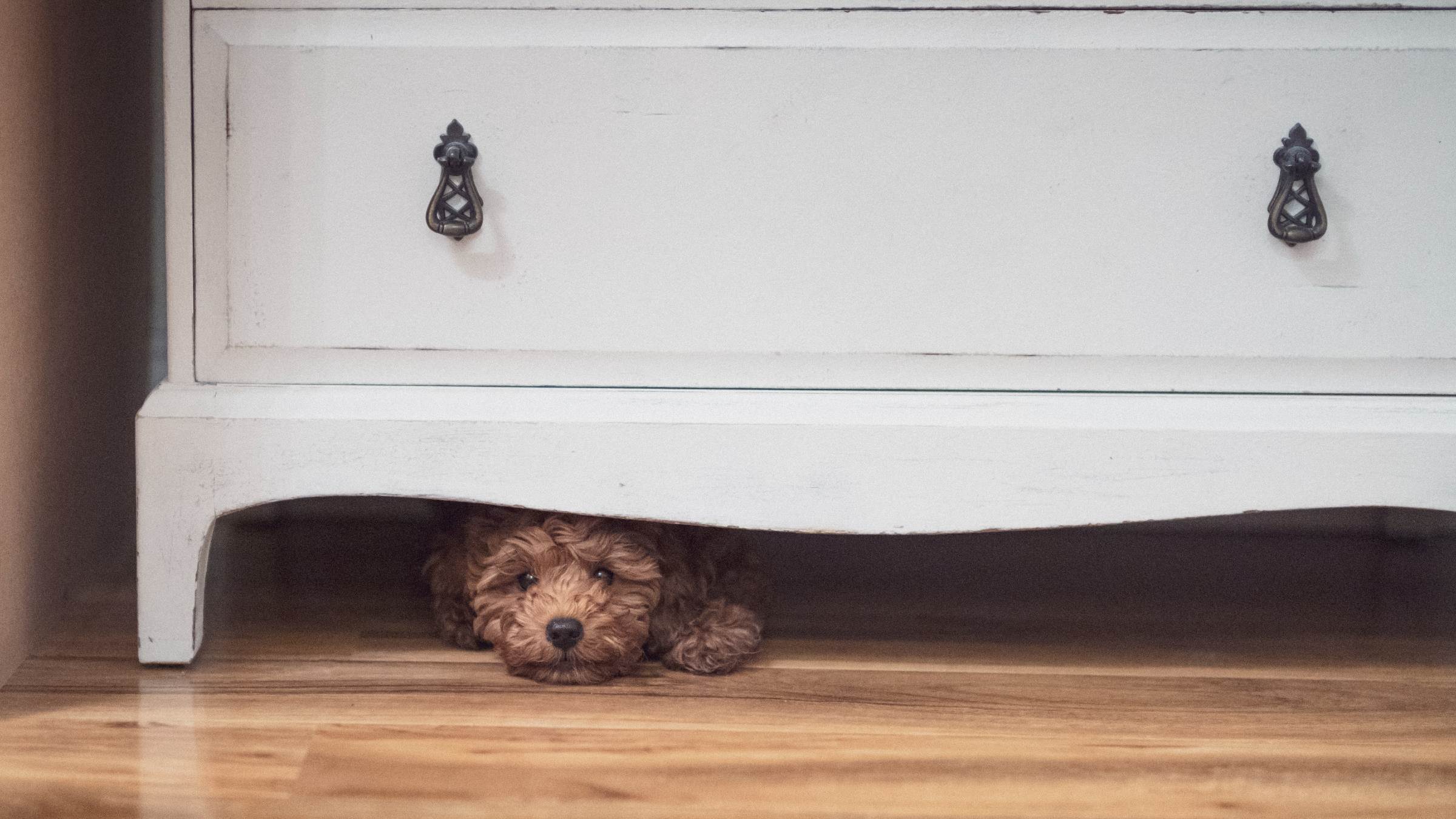
Loud, unexpected bangs from fireworks can cause serious harm or fear in your house pets, but you can help get them acclimated to this annual occurrence over time.
Noise fears are overall very common in cats and dogs. It’s estimated that 25-50% of cats and dogs experience noise aversion. This distress in animals can occur for a number of reasons. Known risk factors are if they were raised in a non-urban environment before 6 months of age, or if they were born after firework season, as they weren’t able to experience them during their sensitive socialization period. Dogs with separation anxiety are also more likely to have a noise aversion.
The following are common signs that your animal is in distress:
- Hiding/escaping
- Urination/defecation
- Drooling
- Dilated pupils
- Trembling/tucking tail
- Destruction, such as digging
Preparing beforehand is the key to helping your animal feel safe during this stressful time. This may include researching the nearest firework displays, as some animals begin to show signs of stress as low as 80 dB (the noise level of a loud conversation or movie). More animals run away during the Fourth of July than any other holiday, so be sure to keep windows and doors shut.
5 helpful tips to soothe your pet:
1 No punishments
Stern words, leash corrections or other negative reactions can make this stressful time even more difficult for your pets.
2 Avoid “fussing”
Saying, “it’s OK, it’s OK, it’s OK” will not help your pet feel better. While comforting them is essential, you should comfort them in a way that works for their needs, whether that be petting or playing fetch. Pay attention to what their initial reaction is and don’t force any sort of behavior.
3 Minimize exposure
Noise fears tend to worsen over time if left unmanaged. It’s difficult for the animal to understand the logic of loud booms and the fact that they aren’t being harmed by it. Each exposure that they feel fear will strengthen that fear.
4 Make the environment safe
Soundproofing panels, white noise and classical music are all great ways to lessen the intensity of the fireworks. Allow your pets to decide where their safe place is. It could be the couch, a closet or under the bed. Keep in mind that their safe place might not be a crate, even if the pet is crate trained.
5 Pharmaceutical management
This could include studied pheromones, nutraceuticals or medications. This type of support can help cats or dogs feel calm enough during fireworks to eat or play, which is what will make a long-lasting impact on their fear over time. This is an excellent option for pet owners who are unable to be with their pets while the fireworks are happening. The pharmaceutical support will do all of the “heavy lifting” to reduce fear, panic, escape or self-harm. One FDA-approved medication for noise fears is Sileo. If you’re interested in this type of treatment, begin discussing options with your veterinarian sooner rather than later. New medications or supplements must be tested first without the fireworks to screen for side effects.
Long-term management for firework fear focuses on making things less fearful over time. The short-term use of food or play during fireworks helps, but systemic desensitization and counterconditioning is the main way to help improve behavior. Comfort your pets the best you can, and remember to consider all of your options ahead of time.

Compassionate, cutting-edge care for your pets
At The Ohio State Veterinary Medical Center, our top priority is making the world healthier for animals and the families who love and care for them.
Learn more about our services




